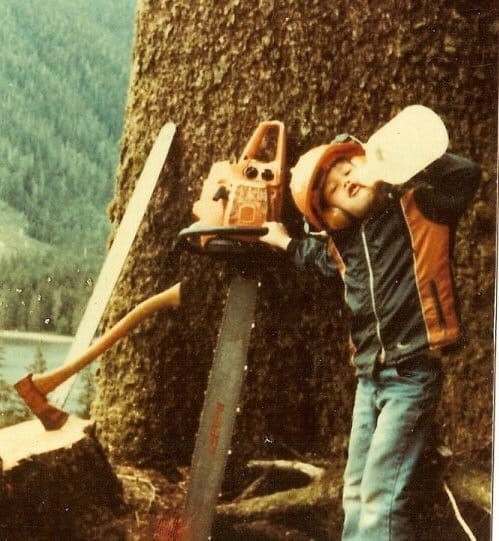
Jacqui Beban was the TLA’s first female president. She’s had various roles and responsibilities in the 30+ years that she has been in the industry. She’s passionate about BC’s coastal forest industry. She’s proud of how the industry has changed and grown. And she’s confident that by “doing the right thing” this industry can meet the needs of a wide range of interests.
For Beban, doing the right thing means listening, learning and building relationships. That means better returns for contractors, licensees and First Nations communities. It also means better returns for those who don’t—yet—know the value this industry continues to bring to their communities and our well-being in BC.
Deep Roots
Family is one of the first things that comes up when talking about Jacqui Beban. On the one side, the Beban family is a four generation dynasty of loggers, all with larger-than-life personalities. Francis “Frank” Beban started as a “mule doctor” in the early 1900s. By 1926, he’d turned a sideline of supplying mines with timber into a major part of Nanaimo’s industrial development. The house and ranch he built stands as a lasting legacy to the City of Nanaimo, providing the grounds for a host of civic facilities that are active 60 years after his death.
His son, John “Jack” Beban, had logging operations stretching from Buckley Bay to the mid-coast in the 1950s. Jack’s son, the younger Frank Beban, was by the 1980s operating five camps between Vancouver Island, the mid-coast, and what was then the Queen Charlotte Islands, employing over 250 people. As TLA Past President Don Banasky says, “As a kid in Nanaimo, everyone’s dad or grandpa worked for the Beban family.”
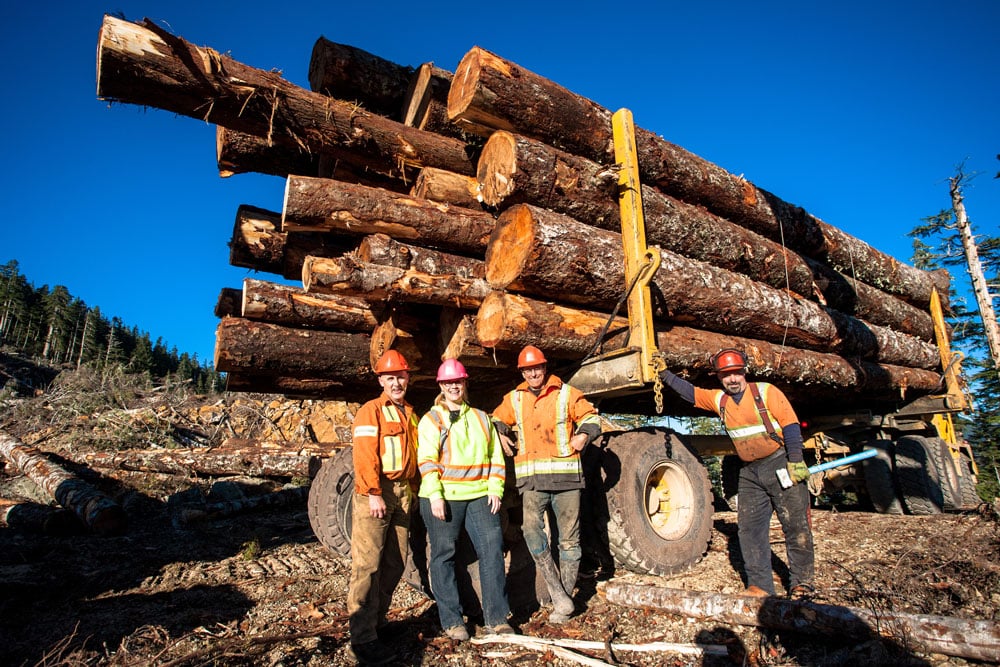
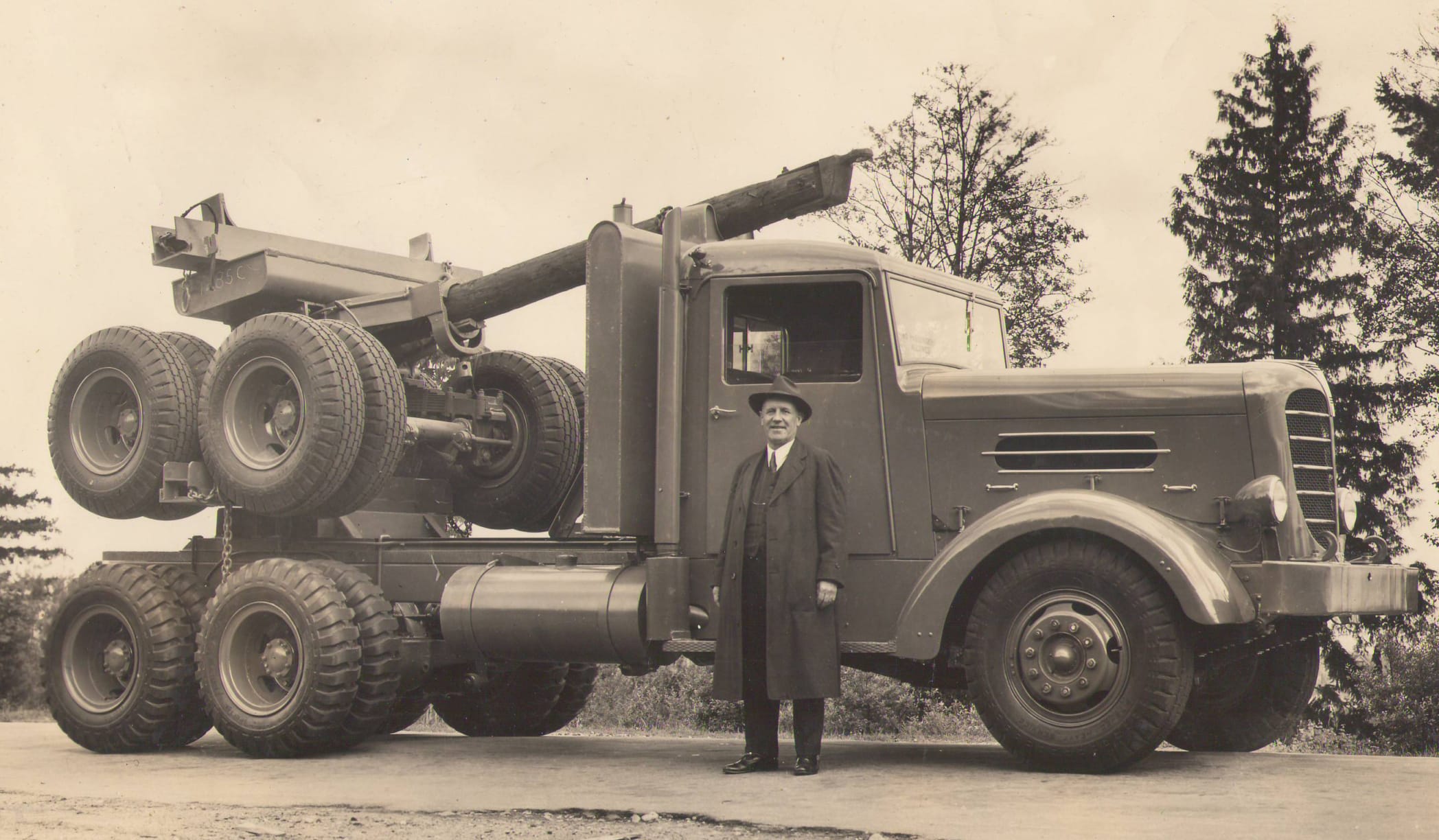
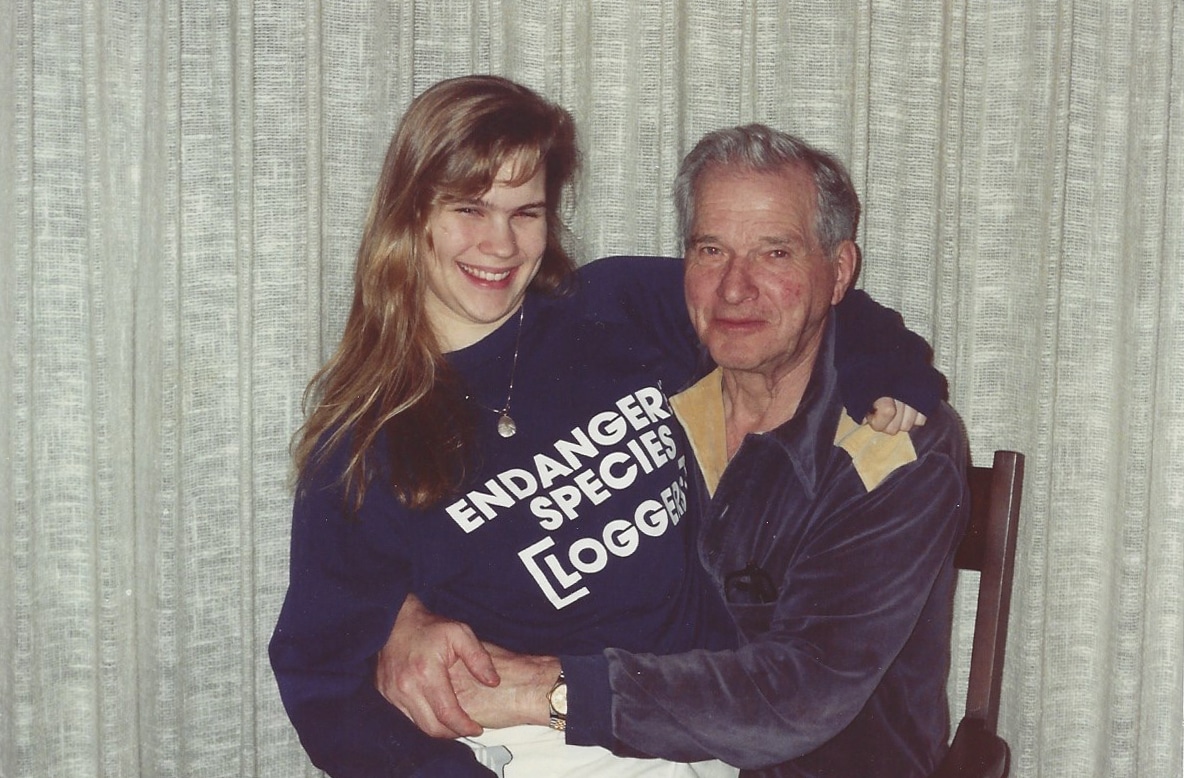
On the other side of the family tree are the Fedjes. Olaf Fedje, arrived on the coast from the Prairies during the depression in the 1930’s and “didn’t even know what a tree looked like,” says his wife Bea. That didn’t stop him from mastering the crosscut saw, then operating—and selling and servicing—a new piece of forestry technology, the chainsaw. In time, the Fedje & Gundarsen outfit became the largest falling contractor on the BC coast. When Frank Beban and Dolores Fedje tied the knot, they brought these logging families together and produced a family of four girls, Jacqui Beban being the youngest.
Big Boots
Family history can be an inspiration. It can also cast a long shadow. Jacqui is not a larger-than-life character like either of the Franks or Jack before her. Few saw the Fedje or Beban drive for success in the younger Jacqui Beban.
Her mother tells a story from when Jacqui was 12 years old. It was a time of uncertainty about the future of Frank Beban Logging, shortly after Frank’s untimely death. Dolores wondered aloud to a friend, “Which of my girls is going to run the company?” Her friend had no doubts. “Jacqui,” she replied, with emphasis.
“That comment stuck in the back of my mind,” says Dolores Beban. It wasn’t a surprise to her when, at age 24, Jacqui got serious about the family business. Seeing her daughter now step into the TLA presidency, Dolores says, “You know, my friend was right.”
Willingness to Learn to Change
Jacqui says her decision to get serious was her “opportunity to grow up.” It wasn’t easy. Learning how to succeed in logging was a challenge. Jacqui praises the teams of support at Frank Beban Logging, Nootka Sound Timber and in the TLA who have helped her learn how to become a leader. Those who’ve worked with her over the years turn the credit back to her.
“She brings something new to the TLA leadership,” says Matt Wealick, a TLA Director. “It’s not just a different perspective; it’s a willingness to look for guidance, even if it’s outside her comfort zone.”
Wealick says Jacqui’s determination to learn is what makes her an important leader for the TLA and the industry today. She and her family have experienced significant personal and business impact from changes to the industry in the past 30 years. Yet her response is to be open—to ask questions, to learn, to put the hurt of the past behind her. To build relationships that look to the future.
“We need to find our common interest in this resource,” she says. “That’s bigger than our differences. Standing together, we can protect the forest, the working forest, and the communities who depend on forest industry jobs.”
“She’s always asking questions,” Wealick says, “And she’s got the knowledge, experience, and willingness to share her perspective.” As Don Banasky puts it, “We’re an industry that’s going through change. We need to change our thinking. We’re doing that, and Jacqui is a big part of that. It’s exciting!”
Priorities and Challenges
As President, Jacqui Beban had two years to make a mark on the TLA and on BC’s coastal forest industry. Her priorities started with working on behalf of TLA members, particularly with the Forest Service Providers Protection Act and Fund. “The TLA has done a lot of work on this,” she says. “We need to ensure there is an ongoing funding mechanism in place to protect contractors.”
She was also determined that the TLA continue to push for contractor sustainability. “People need to be able to make a living. Contractors need to be getting paid a fair rate so they can pay good wages, pay their bills, invest in the future of their companies, and continue to support the communities that rely on them.”
Moving ahead, Beban notes that improving relationships between contractors and licensees is critical. She’s also cognizant of the impact on contactors of the softwood lumber agreement, the health of the global economy and, particularly, the challenge of protecting the working forest. “This is what makes our industry sustainable,” she says, “but no one wants logging in their back yard. That’s an issue in which the TLA can play a strong role, in which we all have to play a role.”
In the past the industry has too easily buckled when faced with threats, Beban says. Her response: build the relationships, find the common ground. She recognizes that the forest resource is big enough to serve many interests, if we work together and stand as one.
“We can’t afford to be divided,” Beban agrees. “If it’s happening to someone else somewhere else, it’s coming to me at some point. Let’s all work together and stand up for ourselves.”
Passion For Place, Passion For The Industry
Jacqui Beban’s roots are deep on Vancouver Island and she’s a champion for protecting its natural beauty. As an active logger she’s also a champion for an industry that’s matured, one that practices the most sustainable forestry on the planet. “I don’t want to see the Island or our coastal beauty destroyed. I think we can have everything: parks, protected areas for people to enjoy, and also a healthy working forest.”
Getting this message out and making it real will test Beban’s strengths. Don Banasky lauds the unique perspective she brings to the issues. Matt Wealick praises her willingness to learn. In sum, Jacqui Beban, the child of historic Island logging families and attitudes, brings a fresh approach to the complexity of today’s BC coastal forest resource.
Characteristically, Beban downplays the novelty of her approach. “It’s really just about opening up communications,” she says. Even where it’s difficult—and she acknowledges that she’s stumped at times—it begins with dialogue and “treating each other with respect. We have a lot of common ground. Where we’re not aligned, we need to find a way to work together in a respectful way, so we can all benefit from our industry.”
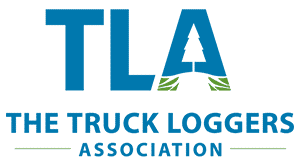





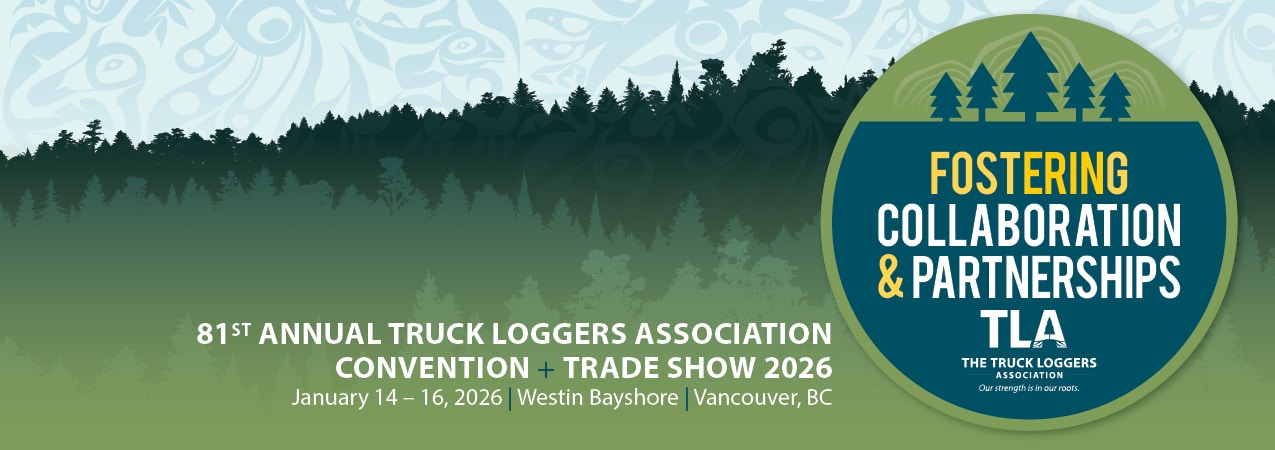
Get Social